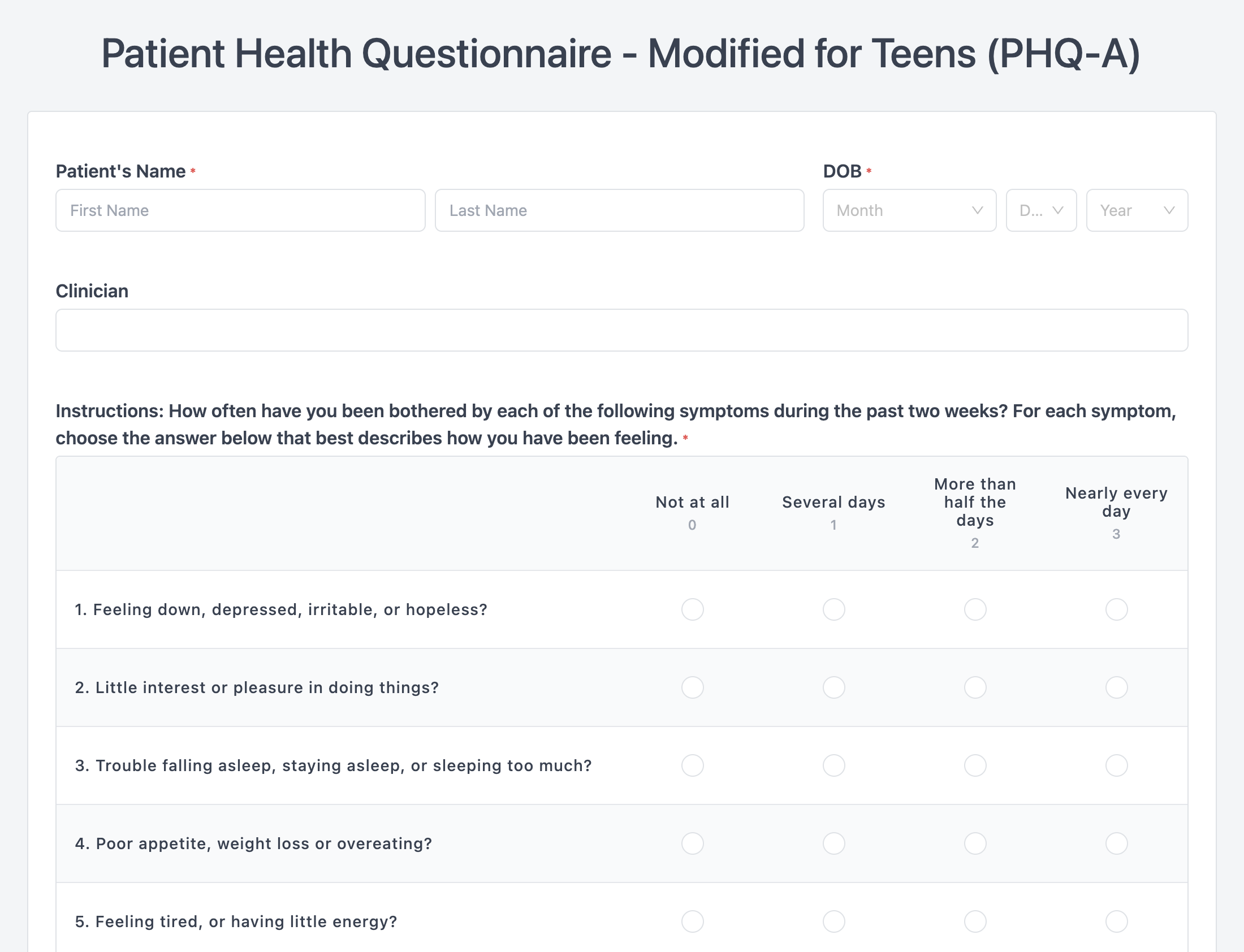

The Patient Health Questionnaire - Modified for Adolescents (PHQ-A) is a validated screening tool adapted from the adult PHQ-9, designed to identify signs of depression in teenagers. It allows healthcare providers to assess mood symptoms, monitor risk factors, and guide early intervention for adolescent mental health concerns.
Early Detection of Depression in Teens
Helps identify emotional struggles in adolescents before they escalate into more serious mental health issues.
Validated and Age-Appropriate
Tailored to reflect how depressive symptoms present in teens, improving sensitivity and accuracy.
Supports Mental Health Integration
Provides a standardized method for behavioral health screening in pediatric primary care.
Facilitates Referrals and Treatment
Offers clear scoring guidance to support referrals to therapy, counseling, or psychiatric care when needed.
Aligned with Clinical Guidelines
Supports USPSTF and AAP recommendations for annual adolescent depression screening.
Pediatric and Adolescent Clinics
Used at annual checkups or behavioral health visits to screen for depression.
Family Medicine Practices
A routine part of adolescent preventive care for patients aged 12–18.
School-Based and College Health Programs
Enables early identification of at-risk students during school health assessments.
Behavioral Health Settings
Serves as a baseline and follow-up measure in therapy or counseling environments.
Telehealth Screenings
Adaptable for virtual visits, especially in behavioral health triage settings.
9 Core Questions:
Adapted from the PHQ-9, addressing sleep, appetite, energy, concentration, mood, and suicidal ideation over the past 2 weeks.
1 Additional Question:
Assesses the impact of symptoms on school, family, and social functioning.
Scoring System:
Each item scored from 0 (not at all) to 3 (nearly every day).
Critical Alert:
Any response to item 9 (suicidal ideation) must be addressed immediately.
Screening Ages:
Recommended for all adolescents aged 12–18 during annual physicals or behavioral evaluations.
Private and Confidential Completion:
Ensure teens complete the form privately to encourage honest responses.
Follow-up Process:
Create clear workflows for elevated scores, including in-office conversations, parent involvement, and referrals.
Documentation:
Include PHQ-A scores and clinical impressions in the patient’s health record and treatment plan.